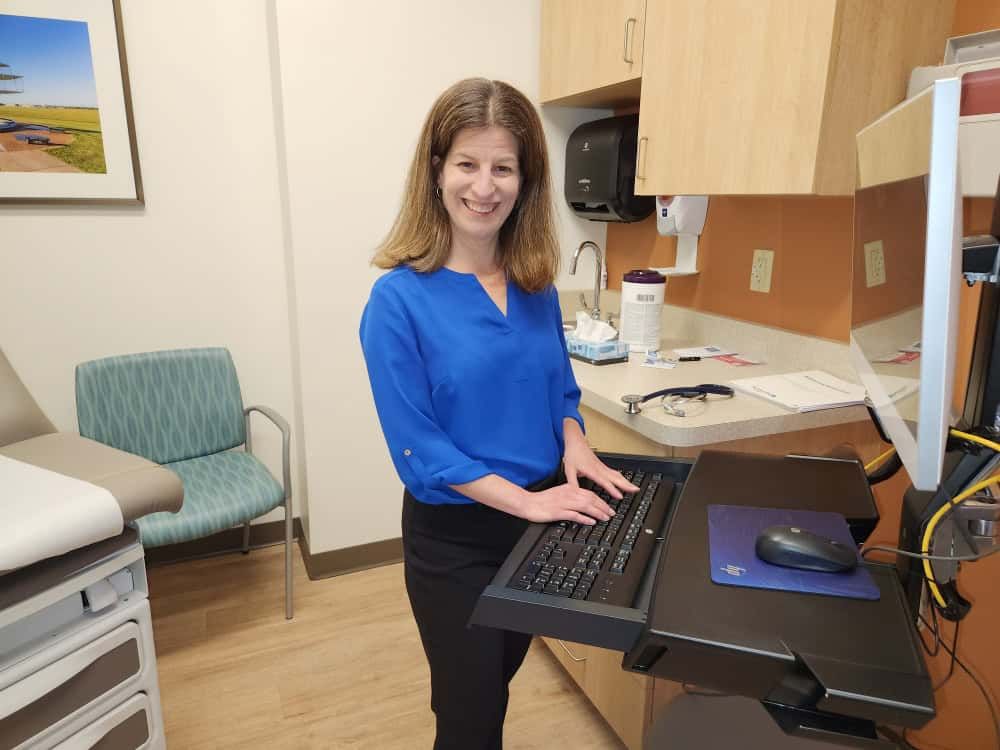Primary Care
Want to learn more about this at Kettering Health?
At a Glance
Q: What is preventive care and why is it important?
A: Preventive care means seeing your doctor before problems start. Regular checkups and screenings help catch issues early and keep you healthy.
- Annual physicals track vitals like blood pressure and BMI.
- Cancer screenings begin in your 40s for most people.
- Vaccines like flu, shingles, and RSV protect as you age.
A proactive approach is the best way to maintain your best health at any age.
“When you go to the doctor before there’s a problem, you can get on the right track to prevent a serious illness later,” says Dr. Keren Ray, a primary care provider (PCP) at Kettering Health Years Ahead.
Preventive care at any age begins with a routine physical exam. Dr. Ray recommends yearly visits with a PCP to check vitals like blood pressure, heart rate, weight, and body mass index. She also advises an annual flu shot and COVID-19 booster.
Here’s a closer look at preventive measures to add as you age.
Young adulthood
Blood pressure screenings typically begin at 18. Dr. Ray says young adults should also have their cholesterol checked by 21 and urges young adults to start getting a tetanus booster every 10 years.
Women should get a Pap test every three years to check for cervical cancer. While clinicians don’t recommend regular testicular cancer tests, men should speak up if they notice anything unusual.
“In this age population, we also screen for things like depression and anxiety, and check for unhealthy alcohol or drug habits,” Dr. Ray adds. “Partner violence is another important thing we screen for in this group.”
Dr. Ray recommends the meningococcal vaccine, which guards against meningitis, for people aged 16-23, especially if they plan to attend college.
For protection against the most common sexually transmitted infection in the United States—the human papillomavirus—experts recommend the HPV vaccine. This shot is now usually given during childhood, but it’s approved for women and men through age 45.
Dr. Ray advises getting the hepatitis B vaccine either during young adulthood or middle age. Screening for the hepatitis C virus is also recommended at least once during adulthood.
Middle age
Dr. Ray says by the time patients reach their 40s, “there is more of a focus on cancer prevention. That means lifestyle choices like no tobacco, eating more vegetables, exercising and maintaining a healthy weight, and avoiding excessive sun exposure.”
Dr. Ray urges patients to get their skin checked regularly by age 40. “People should let their doctor know if they notice anything that might be changing on their skin.”
Women should get a mammogram every year starting at age 40, and continue pap tests at least through 65.
Colon cancer screenings are recommended beginning at 45. Risk factors will determine how often to repeat these screenings.
The same goes for prostate cancer screenings, which occur every 1-3 years depending on individual risk. Men at higher risk, including African Americans and those with a family history of prostate cancer, should begin screenings at age 40. Lower-risk patients usually wait until 50.
Current smokers or those who quit within the last 15 years should consider regular lung cancer screenings starting at 50.
A shingles vaccination is recommended for adults 50 and older.
Elder years
“Here at Years Ahead, we screen for dementia every year starting at 65,” Dr. Ray says. “It’s part of the Medicare Wellness visit.” She also advises people older than 60 to ask their doctor about a pneumonia vaccine and the new RSV shot.
PCPs typically start offering bone density scans to check for osteoporosis at 65. In addition, men aged 65-75 who have ever smoked cigarettes should get an abdominal ultrasound to test their risk for aortic aneurysm.
A healthy lifestyle with exercise and good nutrition is recommended across the lifespan, and Dr. Ray reminds older patients that “it’s never too late to start making changes in your daily life.”
She adds, “A lot of people don’t like going to the doctor, but we take our kids to the pediatrician every year because we know it’s important. It’s just as crucial to take care of ourselves.”









